Nov. 16 to Nov. 22
The British gunboats HMS Bustard and HMS Algerine arrived at Anping Port on the morning of Nov. 21, 1868, positioning themselves so the entire area was within firing range.
John Gibson, acting consul on Formosa, and Lieutenant Thornhaugh Philip Gurdon vowed to attack if the British weren’t redressed for the past nine months of grievances under the rule of Taiwan circuit intendant, a position between Governor and Prefect, Liang Yuan-kui (梁元桂). Their primary goal, however, was to coerce the Qing Dynasty government to relinquish control over the lucrative camphor industry and allow for free trade.
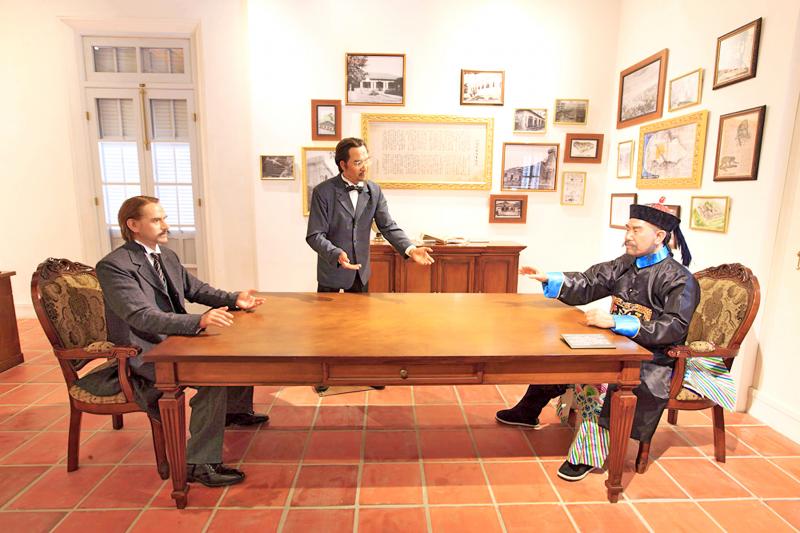
Photo courtesy of The British Consulate of Takow
Around 4pm on Nov. 25, the HMS Algerine bombarded Anping with seven massive cannon shots. That night, the British contingent landed and killed 11 Qing soldiers and swiftly occupied the port. The commander, vice-admiral Chiang Kuo-chen (江國珍), committed suicide in shame after the loss, and another six Qing troops died in the final clash. The British suffered no casualties.
The two sides resumed negotiations afterward and signed the “camphor regulations,” where the Qing gave up their monopoly over the trade and agreed to make restitution to the British for previous disputes. Provincial governor Liu Ming-chuan (劉銘傳) would attempt to re-establish the monopoly about two decades later, but that’s a story for another time.
COVETED COMMODITY
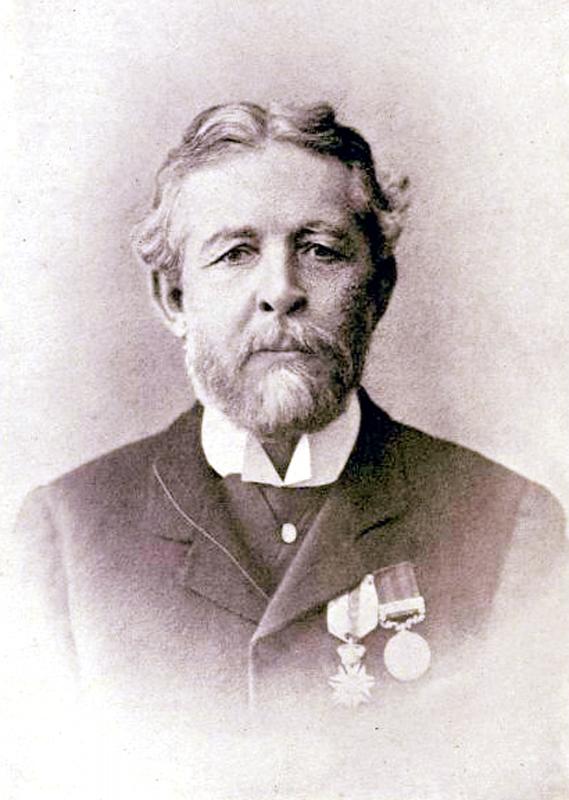
Photo courtesy of Wikimedia Commons
The ports of Anping and Tamsui were opened up to foreign traders after the Qing Empire signed the Treaty of Tianjin with Russia, the US, the UK and France in June 1858. Takao (today’s Kaohsiung) was also opened in 1864, and the area became a hotbed of activity for foreign traders and missionaries.
At the time, Taiwan’s camphor trade was controlled by the Qing government, as only official warship builders had permission to enter the prohibited Aboriginal areas to obtain timber. As a result, they were the only ones with legal access to camphor, and traded the valuable commodity to fund their operations (and fill their coffers). Of course, illegal private production was also rife.
At the turn of the 19th century, camphor had become one of the empire’s main income sources from Taiwan. China had already depleted much of its own camphor, and Taiwan and Japan were the remaining major producing areas; however records from the 1860s show that Taiwan’s exports far exceeded that of Japan.
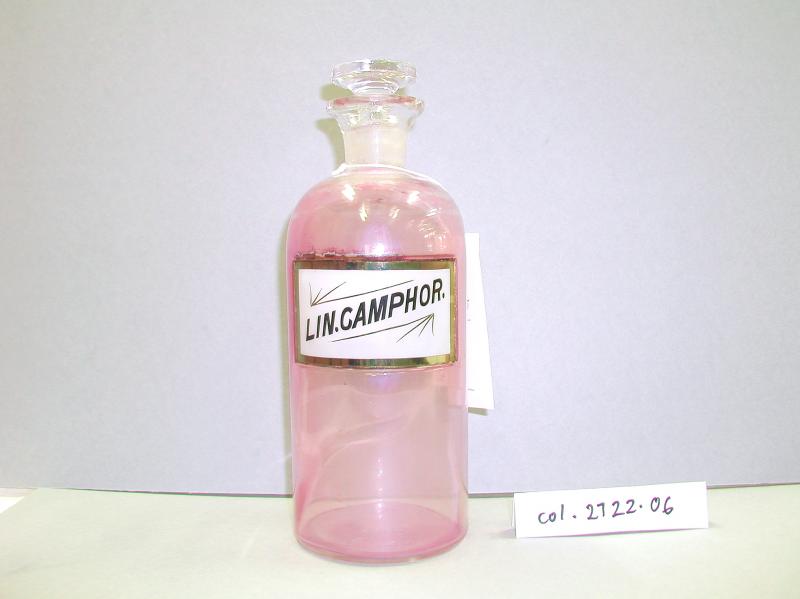
Photo courtesy of Wikimedia Commons
In 1863, the warship timber warehouses were officially converted into camphor producing facilities, with the operations contracted to Han merchants who paid a share to the government. The British saw this as a monopoly that damaged their interests, as they were forced to go through the government to legally trade the product.
In 1867, British representative to Beijing, Rutherford Alcock, lodged a formal complaint to the Qing’s Prince Gong. In addition to blasting the government monopoly as a violation of the trade treaties, Alcock stated that it has also led to rampant illegal trade and armed conflicts between competing merchants.
Chen Te-chih (陳德智) writes in the paper “Tributes and Treaties: Taiwan’s Camphor Dispute as an Example” (羈縻與條約:以臺灣樟腦糾紛為例) that it was a misunderstanding where the British simply wanted free trade of camphor, while the Qing thought that they could reduce the problems by tightening regulations to prevent disputes and illegal behavior, which made the British even angrier. In addition, anti-missionary incidents that year gave the British extra motivation to take action.
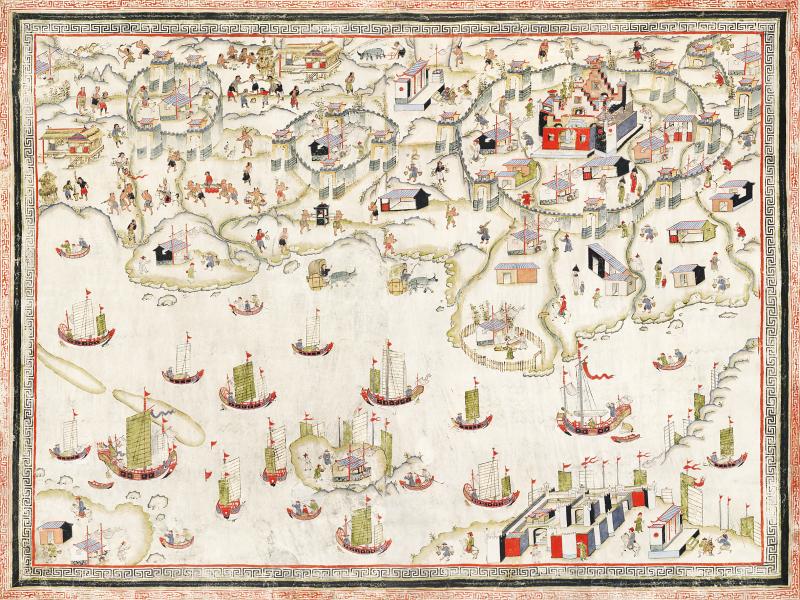
Photo courtesy of Rawpixel
SIMMERING TENSIONS
William Pickering left his native England at the age of 16 as a sailor for the British East India Company, arriving in Taiwan in 1863 to work as a customs officer at Takao. In 1868, as Taiwan representative of the British trading firm Messrs Elles & Co, Pickering received orders to “engage in the trade of camphor,” noting in his book, Pioneering in Formosa, that the surging popularity of the product in America had led to a surge in prices and his bosses wanted a piece of the pie.
In February 1868, Pickering made contact with the Tsai (蔡) clan from Wuci (梧棲, location of today’s Port of Taichung), and allegedly with the consul’s approval he acquired a large quantity of camphor and planned to export it directly. But the government caught wind of this, and worked with the local rival Chen (陳) clan to seize the goods.
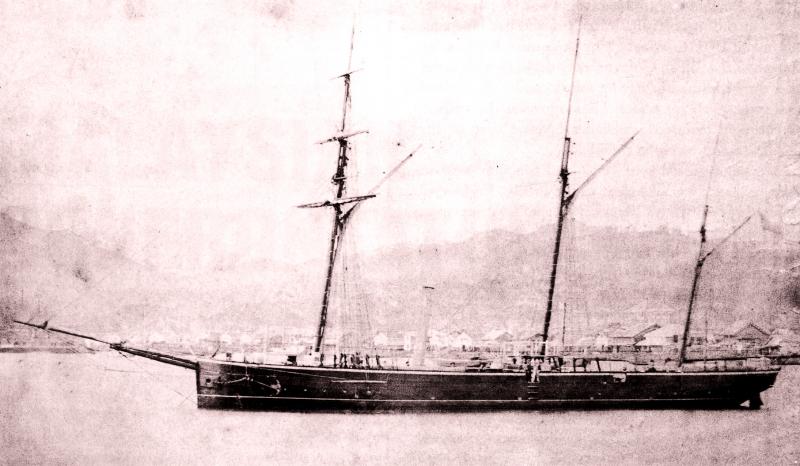
Photo courtesy of Wikimedia Commons
Pickering personally headed to Wuci, and “with the help of our seven-shooter rifle and two boat guns,” his men and the Tsais drove off the Chens. After two weeks of conflict and negotiation, Pickering appeared to have the upper hand when the consul persuaded him to flee because circuit intendant Liang had put a bounty on Pickering’s head and was planning to kill him.
The case dragged on for months and anti-European sentiment surged. In April, a church in today’s Pingtung County was burned, setting off a series of violent incidents against missionaries and Han converts. And in July, Tait & Co agent J.D. Hardie was stabbed by Qing security guards in a dispute on his way from Takao to Anping.
Relations between the two sides continued to deteriorate, and when talks fell through, acting consul Gibson decided to use military force. The British ended up occupying Anping for two months until the matter was settled.
Although the British finally got their way, Gibson did not benefit from his actions. Pickering writes that the new government in England sent orders to the consulate in Beijing that “in the future, all grievances were to be resolved with diplomacy, and that our vessels of war were not to be used as persuasive methods.” He was removed from his post and died soon afterward.
Things didn’t work out that great for Pickering either. Although he was cleared of his bounty and allowed to legally trade camphor, a bitter Liang tried to sabotage his operations at every opportunity. Frustrated and ill with chronic dysentery, he returned home in August 1870 — but the restless soul soon resumed his adventures in Singapore as its Protector of Chinese.
Taiwan in Time, a column about Taiwan’s history that is published every Sunday, spotlights important or interesting events around the nation that either have anniversaries this week or are tied to current events.

Jacques Poissant’s suffering stopped the day he asked his daughter if it would be “cowardly to ask to be helped to die.” The retired Canadian insurance adviser was 93, and “was wasting away” after a long battle with prostate cancer. “He no longer had any zest for life,” Josee Poissant said. Last year her mother made the same choice at 96 when she realized she would not be getting out of hospital. She died surrounded by her children and their partners listening to the music she loved. “She was at peace. She sang until she went to sleep.” Josee Poissant remembers it as a beautiful

For many centuries from the medieval to the early modern era, the island port of Hirado on the northwestern tip of Kyushu in Japan was the epicenter of piracy in East Asia. From bases in Hirado the notorious wokou (倭寇) terrorized Korea and China. They raided coastal towns, carrying off people into slavery and looting everything from grain to porcelain to bells in Buddhist temples. Kyushu itself operated a thriving trade with China in sulfur, a necessary ingredient of the gunpowder that powered militaries from Europe to Japan. Over time Hirado developed into a full service stop for pirates. Booty could

Before the last section of the round-the-island railway was electrified, one old blue train still chugged back and forth between Pingtung County’s Fangliao (枋寮) and Taitung (台東) stations once a day. It was so slow, was so hot (it had no air conditioning) and covered such a short distance, that the low fare still failed to attract many riders. This relic of the past was finally retired when the South Link Line was fully electrified on Dec. 23, 2020. A wave of nostalgia surrounded the termination of the Ordinary Train service, as these train carriages had been in use for decades

Lori Sepich smoked for years and sometimes skipped taking her blood pressure medicine. But she never thought she’d have a heart attack. The possibility “just wasn’t registering with me,” said the 64-year-old from Memphis, Tennessee, who suffered two of them 13 years apart. She’s far from alone. More than 60 million women in the US live with cardiovascular disease, which includes heart disease as well as stroke, heart failure and atrial fibrillation. And despite the myth that heart attacks mostly strike men, women are vulnerable too. Overall in the US, 1 in 5 women dies of cardiovascular disease each year, 37,000 of them